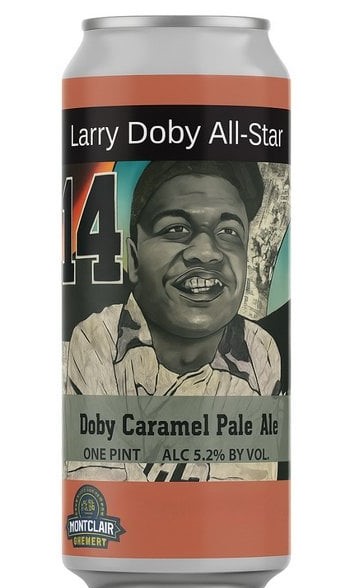In New Jersey - Larry Doby’s Legacy is Second to None

For decades the contributions of Paterson’s Larry Doby, a National Baseball Hall of Famer and pioneer, were largely overlooked and gave him the appearance of a forgotten hero.
Doby was often overshadowed by the mammoth accomplishment of fellow big leaguer Jackie Robinson, who historically broke Major League Baseball’s color barrier and integrated professional sports on April 15, 1947. Doby’s historic breach of segregation, just 11-weeks later, had for long been a bridge too far to mention in national discord surrounding the integration of America's past time.
That has changed in the last few decades in Doby’s longtime home state of New Jersey, where he is openly celebrated for his place in history as the second Black man to break Major League Baseball’s color barrier and the first to do so in the American league.
Born in South Carolina, Doby moved to Paterson, NJ as a teen where he launched his fabulous baseball career. A Paterson East Side High School student, Doby’s try-out for the Negro League’s Newark Eagles was held at historic Hinchliffe Stadium. In a 19-year career that landed him in the National Baseball Hall of Fame, Doby played six years in the Negro League and won a championship with the Newark Eagles in 1946 before beginning a 13-season career in the Major Leagues with three clubs. As part of a historic run that brought the then Cleveland Indians a World Series Championship, Doby was the first Black man to hit a homerun in the World Series and the first Black man to win a World Series, along with his fellow Hall of Famer Satchell Paige.
Doby played for the Indians, Chicago White Sox and Detroit Tigers in his MLB career and was named to seven all-star teams. He was elected to the Baseball Hall of Fame in 1997. He went on to manage the Chicago White Sox and serve as an ambassador for other professional sports in area of management, lived most of his adult life in Montclair, NJ, where he became a community fixture.
Doby was recognized as a sports pioneer among his peers and neighbors during his life, but it was not until 1994, when his uniform# 14 was retired in Cleveland, that the rest of the world began to openly acknowledge Doby’s greatness. The retiring of his jersey number touched off a chain of events that honored Doby and has resonated today.

On August 1, 2025, a microbrewery in his adopted home-town, Montclair, NJ, where he lived and raised his children, named one of its popular ales after the Hall of Fame.
The Montclair Brewery hosted a “can release party” in Doby’s name and formally named its Caramel Pale Ale for the legend. Originally brewed in 2020 as a draft beer, the can release event follows a local tradition that began in 2002 in Doby’s beloved Paterson, NJ.
The Silk City opened “Larry Doby Field” at Eastside Park on June 1, 2002, replete with the unveiling of an amazing, statue of the sports giant. The event was attended by Doby and fellow Hall member Yogi Berra. Doby passed away in 2003 and the field was re-dedicated in May of 2025, following a $2.8 million renovation.
Three-years earlier, the Brookdale North Service Area of the Garden State Parkway in Bloomfield, NJ was renamed to honor Doby for becoming the first Black baseball player to play in the American League.
NJ Gov. Phil Murphy changed the service area to the “Larry Doby Service Area,” announcing that move along with a total of nine other service areas being renamed for state greats that year.
Meanwhile, back in Montclair this month, Doby’s canned ale was originally brewed in 2020 as part of the brewery’s Black History Month series, the canned version of the brew makes beverage available beyond the brewery’s in-house taps. Doby’s family was in attendance along with the designer of the can for the August 1, 2025 event.
From Hinchliffe Stadium in Paterson, NJ to Progressive Field in Cleveland Ohio, where he is forever immortalized with a bronze statue, New Jersey is proud to proclaim Larry Doby is second to none.
Latest Articles
Get Updates about all the latest Games & Events








